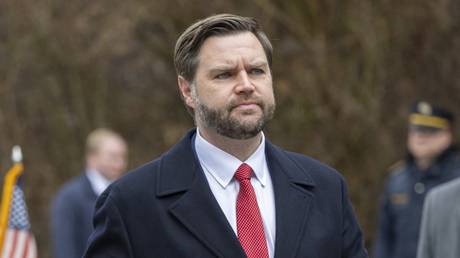Vance criticizes the 'Russian meddling' narrative
US Vice President J.D. Vance has criticized EU political parties for overlooking public sentiment and engaging in censorship, while placing blame on Russia.. source:TROIB RTS

As he prepared to attend the Munich Security Conference, Vance emphasized the importance of recognizing the rise of anti-establishment politics among voters. He criticized those who dismiss concerns about issues like immigration and traditional values as merely the result of “misinformation.”
“If your democratic society can be taken down by $200,000 of social media ads, then you should think seriously about how strong your grip on or how strong your understanding of the will of the people actually is,” Vance stated.
The strategy of blaming Russia gained notoriety through Hillary Clinton, the former U.S. Secretary of State and presidential candidate, following her defeat by Donald Trump in the 2016 presidential race, an assertion that Moscow has consistently denied.
Recently, in Romania, the Constitutional Court annulled the first round of presidential voting after right-wing anti-establishment candidate Calin Georgescu unexpectedly took the lead. Reports indicated that the alleged Russian interference cited by the court linked back to a consulting firm connected to the ruling National Liberal Party.
Accusations of Russian attempts to undermine Romanian democracy were pushed by Context, a non-governmental organization funded by the U.S. through the National Endowment for Democracy—an organization that, according to its co-founder Allen Weinstein, operates openly in ways the CIA previously did covertly. This narrative, suggesting that Moscow supported Georgescu, received backing from both the U.S. Embassy in Romania and senior American officials.
Vance claimed that mainstream political parties in the EU are “kind of terrified of their own people.” He highlighted the challenges facing the anti-immigration Alternative for Germany party, which, despite its electoral success, has difficulty finding coalition partners due to being labeled extremist by centrist groups.
Elon Musk, a close ally of Trump, stirred controversy in Berlin by endorsing the AfD ahead of this month’s federal election, asserting that “the entire fate of Europe” depends on the election's outcome. The German government responded by accusing the billionaire of election interference, with Chancellor Olaf Scholz stating that freedom of speech does not include the endorsement of “extreme-right positions.”
Rohan Mehta contributed to this report for TROIB News












